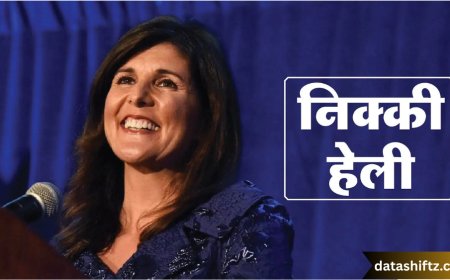Indian Defence Attaché: Strategic Envoys of National Security

Introduction
In the intricate web of international diplomacy and defense cooperation, the role of a Defence Attaché (DA) is indispensable. Often serving as the military face of a nation in a foreign land, Defence Attachés are responsible for representing their country's defense and strategic interests abroad. In India, this position holds substantial weight, considering the nation’s rising geopolitical influence and strategic partnerships across continents.
An Indian Defence Attaché is not just a liaison officer between the Indian Armed Forces and foreign defense establishments but also plays a vital role in security diplomacy, intelligence gathering, arms negotiations, and strategic coordination. This article aims to provide a comprehensive view of the Indian Defence Attaché — their appointment, roles, responsibilities, training, and significance in the broader defense and foreign policy landscape.
Who is an Indian Defence Attaché?
Definition and Role
An Indian Defence Attaché is a commissioned officer from the Indian Army, Navy, or Air Force who is posted to an Indian Embassy or High Commission in a foreign country. The DA is responsible for all defense-related diplomacy and communication with the host country.
Key Objectives
-
Promote military cooperation and defense partnerships
-
Act as a liaison between the Indian military and the host nation's armed forces
-
Facilitate bilateral and multilateral military exercises
-
Report on regional security developments
-
Support Indian defense industry exports
-
Organize high-level military visits
Appointment and Eligibility Criteria
The process of becoming an Indian Defence Attaché is highly selective, involving rigorous screening and vetting.
Eligibility and Appointment Process
-
Rank Requirements: Typically Colonel or equivalent (Group A Gazetted Officer)
-
Service Experience: Minimum 15–20 years of military service
-
Language Skills: Knowledge of the local language is an added advantage
-
Security Clearance: Mandatory from Ministry of Defence and Ministry of External Affairs
-
Selection Panel: Jointly conducted by Ministry of Defence and External Affairs
-
Training: Attachés undergo specialized training in diplomacy, protocol, foreign affairs, and language skills
Key Qualifications for an Indian Defence Attaché
| Requirement | Description |
|---|---|
| Rank | Colonel/Navy Captain/Group Captain or above |
| Service Experience | Minimum 15 years in respective armed force |
| Language Proficiency | Preferred but not mandatory; country-specific |
| Diplomatic Skills | Must demonstrate protocol knowledge and cross-cultural skills |
| Training | Orientation at Foreign Service Institute (FSI), New Delhi |
Responsibilities and Duties of a Defence Attaché
The Indian Defence Attaché acts as the eyes and ears of India’s defense establishment in foreign countries. They are involved in multiple activities that support India’s strategic goals.
Core Duties of an Indian Defence Attaché
-
Represent India in defense-related discussions and negotiations
-
Assist in planning and execution of bilateral or multilateral military exercises
-
Monitor security developments in the region
-
Report on arms procurement, military doctrine, and technology of host country
-
Facilitate visits of Indian defense delegations
-
Support military students studying in the host country
-
Promote India’s Make in India defense exports
-
Coordinate Disaster Relief and Evacuation Operations, if needed
-
Ensure Indian defense personnel abide by international laws and protocols
Importance in International Relations
Strategic Relevance
Indian Defence Attachés play a pivotal role in defense diplomacy, a crucial aspect of India’s foreign policy, especially with strategic partners like the US, France, Russia, Israel, and Japan.
They contribute to:
-
Enhancing military-to-military ties
-
Securing defense technology cooperation
-
Supporting India’s role in peacekeeping and maritime security
-
Developing defense export markets
Key Countries Hosting Indian Defence Attachés
-
United States
-
United Kingdom
-
Russia
-
Israel
-
France
-
Australia
-
Japan
-
Bangladesh
-
UAE
-
South Africa
Impact of Indian Defence Attaché on Bilateral Relations
| Country | Strategic Outcome Enabled by DA |
|---|---|
| United States | Joint Exercises like Yudh Abhyas, Defense Technology & Trade Initiative |
| France | Rafale deal facilitation, Indo-French Naval Cooperation |
| Russia | Procurement of S-400, BrahMos JV Coordination |
| Israel | Counter-terrorism training, UAV technology collaboration |
| Japan | Indo-Pacific maritime security, Coast Guard operations |
Training and Preparation
Before assuming their post abroad, Defence Attachés undergo extensive training and sensitization programs designed to prepare them for diplomatic and cross-cultural challenges.
Training Institutes and Focus Areas
-
Foreign Service Institute (FSI) – Diplomatic protocols, international law, and language
-
Defence Services Staff College (DSSC) – Strategic studies and regional geopolitics
-
Language Schools – Basic to intermediate knowledge of host country’s language
-
Military Attaché Familiarization Programs – Conducted by embassies and other government agencies
Challenges Faced by Indian Defence Attachés
While prestigious, the position of a Defence Attaché is not without challenges.
Common Operational Challenges
-
Navigating sensitive geopolitical climates
-
Balancing classified intelligence gathering with diplomatic norms
-
Operating in countries with strained bilateral relations
-
Managing cross-cultural misunderstandings
-
Working in high-conflict or hostile zones
Despite these, the Indian Defence Attaché plays a critical role in safeguarding India’s interests overseas.
Future Outlook and Expansion
India is rapidly expanding its defense attaché network in Africa, Southeast Asia, and Latin America as part of its Act East and Look Africa policies. This helps in:
-
Promoting Indian defense exports
-
Developing new security alliances
-
Monitoring maritime and cyber threats
-
Positioning India as a net security provider in the Indo-Pacific region
Conclusion
The role of the Indian Defence Attaché is one of immense importance and responsibility. As India grows into a global power, its Defence Attachés stand at the forefront of military diplomacy, strategic engagement, and defense modernization.
They are not merely observers but active participants shaping the defense narrative of India in foreign capitals. With evolving global threats, defense collaboration, and intelligence sharing becoming critical, India’s DAs will continue to play a key role in fortifying national and global security.





























